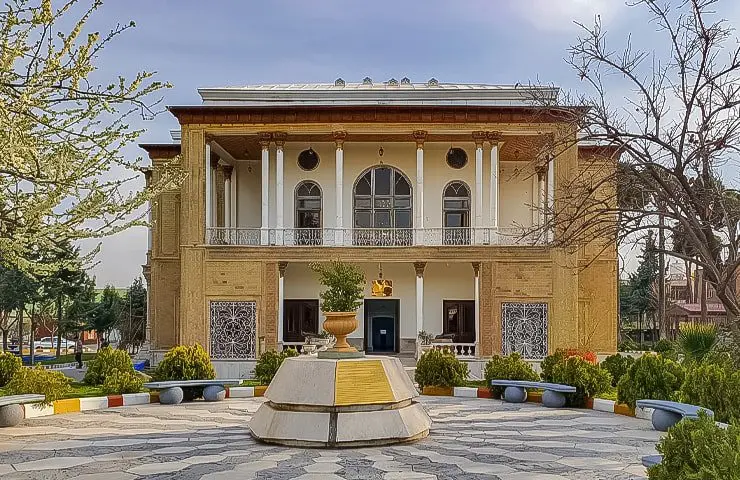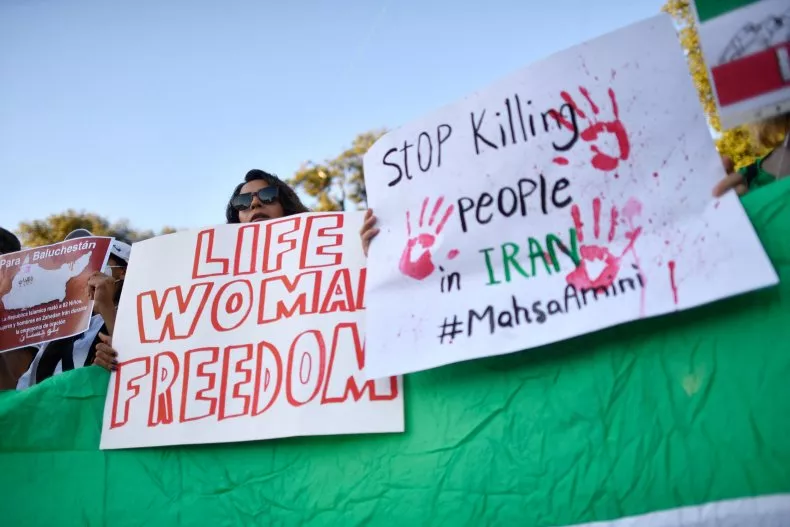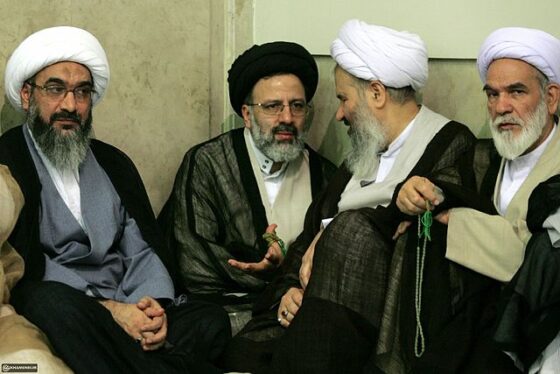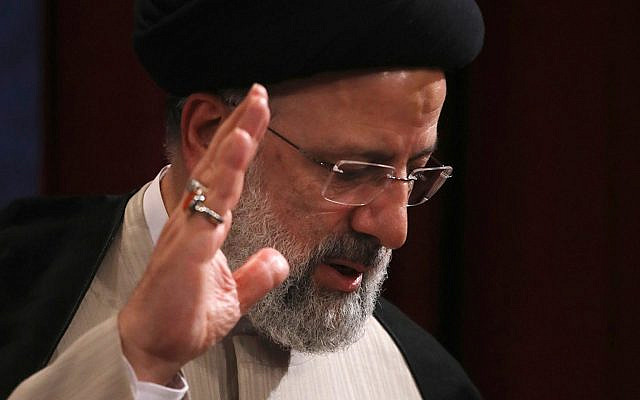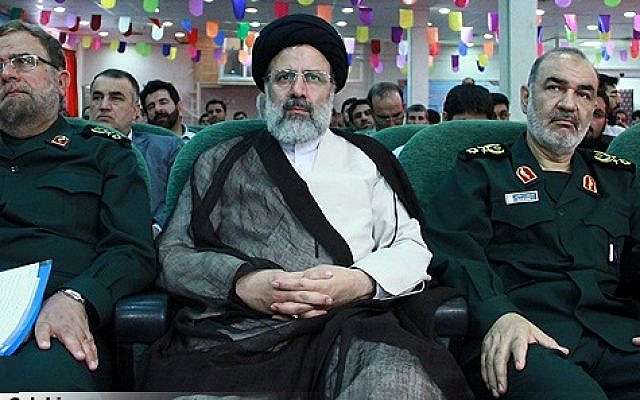War Avoided, Biden Transition Brings ‘Opportunity’ for New Iran Relations, Top General Says
Published on: 2021-01-27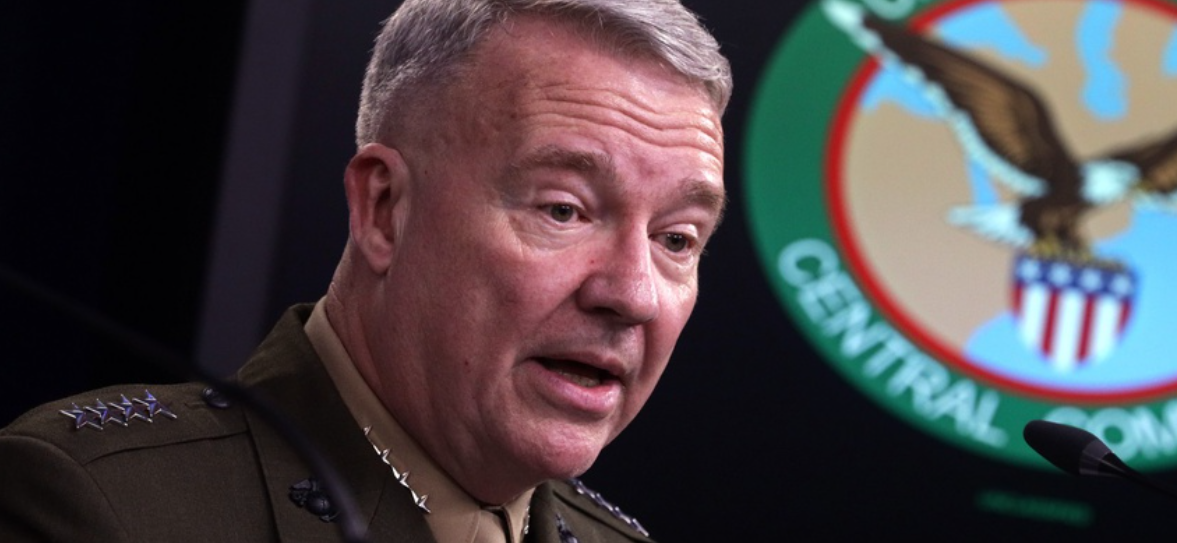
‘Our goal was to deter a war,’ said CENTCOM’s Gen. McKenzie of the past few months, en route to the region for his first visit under the new administration.
Katie Bo Williams – January 24th, 2021
ABOARD A MILITARY PLANE — Relations between the United States and Iran are in a “period of opportunity” following the inauguration of President Joe Biden, the top U.S. military commander in the Middle East said during his first swing into the region under the new administration.
U.S. Central Command’s Gen. Frank McKenzie confirmed that there were “heightened threat streams” from Iran during the months leading up to Biden’s election and inauguration, but said that the United States was able to maintain what he has long termed a “contested deterrence” during what has become increasingly clear was an unnerving and unpredictable moment.
“Our goal was to deter a war,” McKenzie told reporters traveling with him to the region.
Not only did Iran not strike any U.S. targets directly, as some security and military analysts had worried it might do in the waning days of former President Donald Trump’s tenure, but Iran was also largely able to manage its proxy actors in Iraq and elsewhere in the region, McKenzie said. Not all of those groups operate under direct command and control from Tehran.
“Largely they have been able to tell them this is not the time to provoke a war,” he said. “Not all of that is probably the result of the military component. I’m sure there’s a political calculation in Iran to get to a new administration and see if things change.”
Now, McKenzie said, “You have a new administration that’s going to revisit U.S. policy.”
McKenzie enters the region in a moment of transition for U.S. foreign policy, in particular toward Iran. Biden has vowed to redevelop some form of the so-called Iran nuclear deal negotiated by the Obama administration, which Trump exited in 2018. Biden also is signaling a change in relations with Saudi Arabia, including ending support for the Saudi-led conflict in Yemen and releasing results of a U.S. investigation into the 2018 killing of Washington Post columnist Jamal Khashoggi. The new administration is also reviewing the U.S. deal with the Taliban that called for all American troops to withdraw from Afghanistan this year if the Taliban meet certain conditions. Trump left Biden a sharply-reduced force of 2,500 troops.
McKenzie said that he has “not yet” received new orders related to the war in Afghanistan, where he noted that NATO and other nations have more troops on the ground than the United States. It’s possible that Biden may choose to stick with that force posture, at least for now.
“I think you would expect the new team to come in and do their due diligence,” McKenzie said. “I had an opportunity to talk to the transition team before the inauguration. They had a lot of very good questions, a lot of requests for information.”
Meanwhile, the United States continues to grapple with an unsettled political landscape at home and the coronavirus pandemic that, among other things, has complicated international travel for officials like McKenzie.
Defense Secretary Lloyd Austin, who was confirmed by the Senate and sworn into office on Friday, is “focused on COVID,” McKenzie said — suggesting that, at least for now, American policy in the Middle East won’t see any immediate major shifts. Austin’s carefully crafted first day on the job included briefings on the Pentagon’s COVID response, and operational briefings on China and the Middle East, according to his public schedule. McKenzie insisted that the timing of his trip wasn’t tied to the inauguration of the new president — the pandemic has curtailed his usual travel, he said — and that part of his mission is to project that “everything is steady.”
Some initiatives from the Trump administration will live on. The Abraham Accords, which normalized trade and diplomatic relations between Israel and a number of Gulf nations, is “a good thing” McKenzie said — and one that “concerns[s] Iran.”
The trip is also McKenzie’s first to the region since the Trump administration’s decision to move Israel into the set of countries for which CENTCOM is responsible. McKenzie praised the move as “net a good thing,” but cautioned it “won’t change overnight.” The restructuring received some criticism mainly because Trump ordered it in the waning days of his administration, but as a policy matter, military and security analysts have long suggested Israel would be a more natural fit in CENTCOM’s orbit. The move is also a reflection of the success of the Abraham Accords, which removed a key hurdle: Israel had been in the sphere of U.S. European Command because its hostile relations with Arab nations had made it difficult for the United States to do business with both at the same time.
The shift “formalizes the relationship” between U.S. Central Command and Israel, McKenzie said, but will have little impact on “day-to-day operations” and more on the ease of facilitating arms sales.
McKenzie also acknowledged concerns about domestic extremism within military ranks, as news reports have revealed that as many as one in five of those arrested in the Jan. 6 assault on the U.S. Capitol were current or former service members.
“I think you never divorce the military from society, so the problems that are in society are in the military,” McKenzie said. “I don’t know that it’s worse [in the military]… I’m not sure I’d say that. I do say we have the same problem as the rest of American society.”

